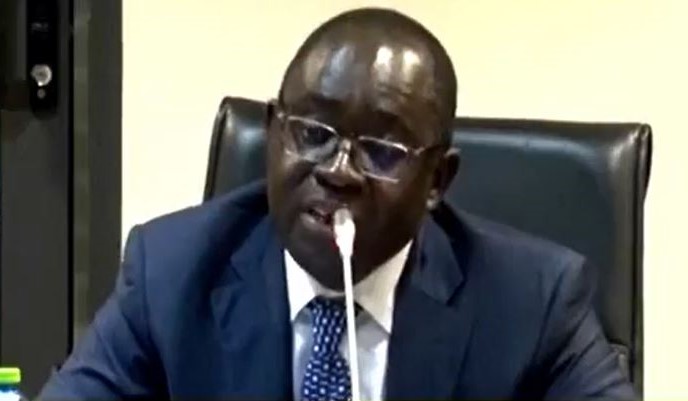The Minority Leader, Dr. Cassiel Ato Forson, has expressed strong disapproval of the nomination of a dual citizen for the position of Supreme Court judge.
According to Dr. Forson, dual citizens are ineligible to hold key government positions, particularly as judges on the Supreme Court.
President Akufo-Addo has nominated Professor Richard Frimpong Oppong, a dual citizen, alongside Justice Sophia Essah, for the Supreme Court.
However, during the vetting on Tuesday, August 12, Dr Forson, who serves on the Appointments Committee of Parliament, argued that Prof. Oppong does not qualify to be a Supreme Court judge due to his dual citizenship.
Dr. Forson insisted that Prof. Oppong must renounce his foreign citizenship before his approval can be recommended.
“The Constitution, in Article 156(1), is clear that you would have to take an oath of allegiance, and the same Supreme Court has equated allegiance to nationality,” Dr Forson stated.
“In my view, you do not qualify, and I believe that you would need to renounce your citizenship to be eligible for the role of a Supreme Court judge.”
Adding to the debate, the National Democratic Congress (NDC) Member of Parliament for Ellembelle, Emmanuel Armah-Kofi Buah, argued that it is inconsistent to disqualify the NDC MP for Assin North, Gyakye Quayson, from Parliament even after he had renounced his citizenship.
Background
Prof. Oppong, who holds dual Ghanaian-Canadian citizenship, could become the first dual citizen to sit on Ghana's Supreme Court.
This is possible because the Supreme Court few months back ruled against sections of the Citizenship Act, allowing dual citizens to hold positions such as Chief Justice and Chief Director.
- Read also: Dual citizens eligible for Chief Justice, Chief Director, other positions – Supreme Court rules
The Supreme Court declared certain sections of the Citizenship Act unconstitutional, permitting dual citizens to serve in various high-ranking positions.
The court's decision, delivered by a majority, nullifies the sections that bar dual citizens from roles including Chief Justice, Commissioner of the Value Added Tax Service, and Chief Director of a Ministry.
The ruling effectively amends Article 289(2) of the 1992 Constitution, allowing dual citizens to be appointed to key government positions previously restricted to single citizens.
Latest Stories
-
Ghana could reclaim $4 million from solar waste with proper recycling – KNUST Study finds
4 minutes -
Focus on electability, not endorsements – Political analyst warns NPP delegates
11 minutes -
Trump shares message from Nato chief praising ‘decisive action’ in Iran
17 minutes -
Water supply improves in Bongo town, but fluoride concerns persist
19 minutes -
New LI in the offing to make disability inclusion mandatory – Dr Apaak
20 minutes -
Endorsements don’t always equate to actual votes, says Bryan Acheampong’s camp
33 minutes -
University of Ghana issues COVID-19 resurgence alert
37 minutes -
Pastor accused of withdrawing cash from dead friend’s account faces court
43 minutes -
Concerned Small Scale Miners accuse gov’t of targeting, harassment, unlawful seizure of equipment
52 minutes -
Let the law be your compass: Kojo Oppong Nkrumah inspires future lawyers at KNUST Law Week
54 minutes -
Bryan Acheampong declares intent to contest NPP flagbearership position
1 hour -
ComUnity Spaces fosters business growth through networking
1 hour -
Ras Kuuku has been very supportive to me – Masaany
1 hour -
Inside the quiet meetings steering Ghana’s governance transformation
2 hours -
“The world has evolved” – Maya Blu on calls to stick to highlife
2 hours

